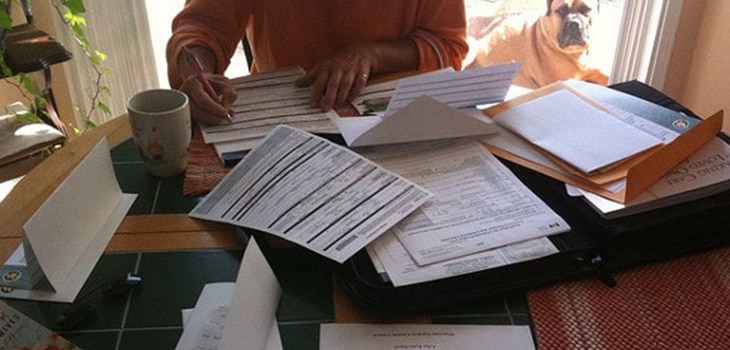Power of attorneys, or POAs, are an agreement enabling a person (or people) to act on behalf of another person. They allow the person accepting the power (the donee) to transact on property, so the settlement process in Perth can be impacted if a power of attorney is involved.
Power of attorneys come in different forms, but the types we most commonly see are:
1. Enduring power of attorney
An enduring power of attorney enables a person (or people) to make any financial and property decisions on behalf of another person (referred to as the donor), until revoked.
These decisions may include selling or purchasing property, carrying out banking, or collecting debts. An enduring power of attorney might be granted to a family member, a close friend, or another person that the donee trusts to manage their financial and property decisions even if the donor loses full legal capacity.
2. Limited power of attorney
Powers of Attorney agreements can also be limited, allowing the donee(s) to perform specific tasks only. They will also specify a time the POA is in force for.
If a home owner is out of the country but wishes to sell their home, for example, they may provide limited Powers of Attorney to someone they trust who lives locally, allowing that person to carry out the property transaction on their behalf.
Before granting Powers of Attorney, think carefully about your decision and consider seeking legal advice. If more than one donee has been appointed, you will also need to decide if only one attorney needs to sign documents (referred to as ‘jointly and severally’), or if both attorneys need to sign (‘jointly’).
When it comes time for settlement, the most commonly forgotten (but very important) aspect of power of attorney is lodgement with Landgate. If you are selling or purchasing property using Powers of Attorney, the POA documentation must be lodged before a property can be sold or purchased on behalf of the donor.
It’s recommended that you lodge two signed copies of the power of attorney documents, one to be retained by Landgate and one to be returned as the client original. Further, if the POA is lodged three or more months after being signed, a statutory declaration must also be lodged to prove that the POA has not been revoked.
Ensure the power of attorney and any other required documentation is lodged with Landgate, and you’re well on your way to a smooth property . Contact Landgate for more information.
Image by John Patrick Robichaud via Flickr.
Power of attorneys (POAs) are a valuable method of allowing one person to transact property on behalf of another person. It’s likely you’ve come across POAs before – they are used when a seller is out of the country, in another state, or otherwise unable to act on their own behalf.
This scenario, from an old article in The Australian, sheds some light on why POAs can be so useful:
“Jack and his wife Betty chose to sell their home before taking an extended trip around Australia. But selling their home was not easy: the market was past its peak and their house sat, unsold, for six months.
“Not wanting to wait any longer, Jack and Betty opted to take their trip first. As luck would have it, two weeks after they left, a buyer emerged who was desperate to move into their neighbourhood. Despite frantic efforts by the real estate agent and family members to contact them, Jack and Betty remained blissfully ignorant and out of touch for six weeks.
“The buyer, not wanting to wait around, bought down the street. It took Jack and Betty another 12 months before they could find a buyer and even then they reluctantly had to drop their price.”
This case study demonstrates why it’s so important to make adequate plans when going away – and why many sellers in that situation grant power of attorney to someone they trust.
Power of attorneys come in different forms, but the two types we see most often are:
- Enduring power of attorney – this enables a person (or people) to make any financial and property decisions on behalf of the donor, until revoked. An enduring power of attorney might be granted to a family member or someone else that the donee trusts to manage their financial and property decisions even if the donor loses full legal capacity.
- Limited power of attorney – these allow the donee(s) to perform specific tasks only, and also specify a time the POA is in force for. If a home owner is out of the country but wishes to sell their home, for example, they may provide limited Powers of Attorney to someone they trust who lives locally.
Before granting Powers of Attorney, sellers should think carefully about their decision and consider seeking legal advice. If more than one donee has been appointed, they will also need to decide if only one attorney needs to sign documents (referred to as ‘jointly and severally’), or if both attorneys need to sign (‘jointly’).
So what does a settlement involving a power of attorney mean for you?
For a person acting under power of attorney (POA) to sell property on behalf of another person, the power of attorney documentation must be lodged with landgate before settlement can occur. If it’s been three or more months since the POA was signed, Landgate also require a statutory declaration proving the POA has not been revoked.
It’s recommended that two signed copies of the power of attorney documents are lodged, one to be retained by Landgate and one to be returned as the client original.
When it comes to settlement, lodgement of the POA is a step that is often overlooked, but vital. You can help avoid hassle by ensuring the power of attorney documentation is lodged before settlement is due to occur.
Image by Tim Pierce via Flickr.

